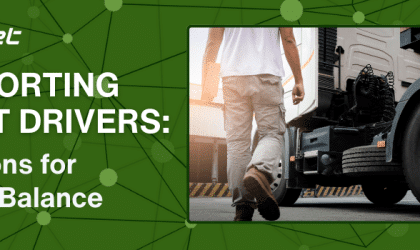Gas Detection Systems: How Do They Work?
How Do GoFleet’s Gas Detection Systems Work?
Gas detection systems are offered by GoFleet as an add-on to their fleet management solution. They measure the concentration of gases in the air for worker safety purposes. The units signify high levels of gas through visible and audible indicators in addition to sending instant threat reports to the driver’s fleet manager.
While older gas detectors where originally designed to detect only one gas, GoFleet’s modern gas detection systems have four different gas sensors in one unit. Users can select the types of gases that are to be detected. There are over 120 different possibilities. In addition to improving workers’ safety, GoFleet’s gas detection systems are fully integrated with the fleet management solution to make managing a fleet more efficient and productive.
GoFleet offers two different types of gas detection systems: 1) Oil and gas and 2) Fire and HazMat. The oil and gas package helps fleet managers protect their oil and gas workers with a combination of gas senor solutions. The fire and hazmat package is used for to protect public safety employees who face toxic gas hazards every day.
Gas detection systems improve worker safety in confined spaces such as vehicles, bins, cargo trucks, storage containers, vessels and pits, as they do not have continuous occupancy by employees.
GoFleet’s gas detection systems are extremely reliable. The gas sensors can run off of internal rechargeable batteries or the vehicle’s power. Fleet managers receive continuous gas detector reports for safety including the signal strength of the radio and the level of the battery charge. These reports are sent directly to GoFleet’s Geotab GO device.
Workers using one of GoFleet’s gas detection systems can also send a panic alarm to fleet managers from within 300 feet of their vehicle. If external antennas are installed, they can use the panic button up to a mile away.
Adding a gas detection system on to a vehicle is essential when your workers’ safety is at risk. The workers will know the presence of gases even before they exit the vehicle.



